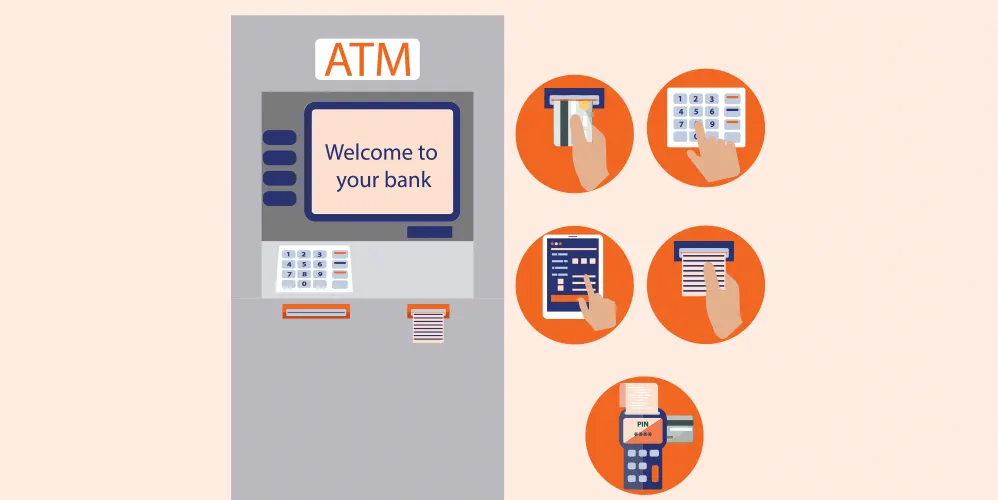
आपकी निवेश आवश्यकताओं के लिए विभिन्न प्रकार के फिक्स्ड डिपॉजिट
14 अप्रैल 2023

Table of Content
What are The Different Types of Fixed Deposits?
Fixed deposits (FD) are among the most popular types of savings and investments. They allow you to earn interest on the amount you deposit for a fixed period. If you do not like to take risks when it comes to investments, you can choose from different types of fixed deposits. FDs are perfect as you can redeem your original amount and interest as soon as they mature.
Opening a fixed deposit is quite easy, and you can do it online or offline. As different types of FD options are available, you may feel overwhelmed and need help choosing the best option.
However, once you are aware of all the types of fixed deposit choices and their key features, it can become easy to take a call.
Here are the different types of fixed deposits available on the market:
Types of Fixed Deposits
While banks provide a wide array of options, FDs are mainly categorised into two heads: Cumulative Fixed Deposit and Non-cumulative Fixed Deposit.
The following are some of the most common types of fixed deposits:
• Cumulative Fixed Deposit
In terms of Reserve Bank of India directives, interest shall be calculated at quarterly compounding intervals on Term deposits and paid at the rate decided by the Bank depending upon the period of deposits. In this scheme, the depositor gets the benefit to earn interest on both principal and interest components. Our bank is having Cumulative fixed deposit in the name of Baroda Regular Income cum Recurring Deposit .
• Non-cumulative Fixed Deposit
In this scheme / product interest is not accumulated but paid to the depositor at regular intervals. This ensures a passive income for the depositor. Our bank is having Non-cumulative fixed deposit in the name of Baroda Regular Income PLAN - Monthly Income Plan , Baroda Regular Income Plan - Quarterly Income Plan .
Flexi Fixed Deposit
Selective schemes of Savings and Current accounts have facility of Auto Sweep where balances above a certain threshold are swept out to Flexi Deposits in multiples of a sweep out account (Threshold amount ,Sweep out amount and deposit period are scheme specific ).Whenever the balance in savings /current account fall short below (stipulated balance requirement ) to clear any debits in the operative account ,the FFD can be broken in last in first Out (LIFO ) principle (in multiples of sweep amount specific to scheme )as per the guidelines of the Bank .
• Standard Fixed Deposit
This is one of the most popular types of fixed deposits. A standard fixed deposit is one of the most common FDs. You can go to your bank and open a fixed deposit. Banks have FD interest rates for different tenures and amounts, and you can choose to deposit your money for a predetermined period. From seven days to ten years, you can choose any tenure that you want.
• Regular Income Fixed Deposit
This type of fixed deposit offers a guaranteed return on the money you deposit. Users get a fixed sum of money as a monthly return. This return entirely depends on the amount you are keeping as a fixed deposit. As the type of fixed deposit is liquid, you can withdraw your investment anytime. Moreover, the withdrawal cost is nominal, and there are no charges for opening or managing the deposit. It is also among the most popular types of FDs.
• Tax Saving Fixed Deposit
According to the Indian Income Tax Act, customers can save up to Rs. 1.5 lakh in income tax benefits by investing an appropriate amount in tax saving fixed deposits. However, tax saving FD get locked in, and there is no option to liquidate them before the maturity date. Regarding interest rates, you can receive them on a quarterly or monthly basis as per your preference.
• Senior Citizen Fixed Deposit
The interest rates for senior citizens are the highest. Users can choose different options for payouts, like monthly, quarterly, or yearly. Most seniors opt for a monthly interest rate as they may not have any other mode of steady income.
Types of FDs for NRIs
Indian banks offer fixed deposit options for NRIs. In particular, NRE fixed deposit and NRO fixed deposit are more popular.
• NRE Fixed Deposit
In the NRE Fixed Deposit , you can transfer foreign currency into your account. It gets converted to INR automatically. Moreover, the interest you earn on the NRE fixed deposit is tax-free. This is among the popular types of fixed deposits as it allows NRI investors to earn attractive interest rates. The tenures may range from one to ten years.
• NRO Fixed Deposit
NRO Fixed Deposits are the best for residents who have a stable source of income coming from India. For instance, this payment can be the rent you receive, fees, or any other business. Remember that this fixed deposit is fully taxable, and the interest rates differ in various banks.
Also Read - How to Open a Fixed Deposit Account
How To Choose the Right Fixed Deposit
As an investor, it is natural for you to seek higher interest rates. But your choice of interest rate depends on how long you can keep your money in an FD, as FDs with shorter tenure attract lower interest rates. Given this, based on your financial goals, you can choose the tenure for your FD.
However, it would help to diversify your investments in different FD tenures. This ensures you can access your funds in a shorter tenure sooner and as per your needs, while FDs in longer tenure earn a higher interest rate.
Conclusion
While several investment options are available, fixed deposits remain the safest. They will be your best bet if you want guaranteed returns on your investments.
There are many different types of fixed deposit options. You should choose the one that suits you the most.
Popular Articles
What is Tenure in a Personal Loan and How to Choose the Loan Tenure Smartly?
Related Articles



What is CVV on a Debit Card? Understanding Its Importance and Security Features


How to Update Your FASTag KYC: Step-by-Step Guide for Online & Offline Methods




The Importance of Pension Funds: Secure Your Future with Steady Retirement Income

-
डिस्क्लेमर
इस लेख/इन्फोग्राफिक/चित्र/वीडियो की सामग्री का उद्देश्य केवल सूचना से है और जरूरी नहीं कि यह बैंक ऑफ बड़ौदा के विचारों को प्रतिबिंबित करे। सामग्री प्रकृति में सामान्य हैं और यह केवल सूचना मात्र है। यह आपकी विशेष परिस्थितियों में विशिष्ट सलाह का विकल्प नहीं होगा । बैंक ऑफ बड़ौदा और/या इसके सहयोगी और इसकी सहायक कंपनियां सटीकता के संबंध में कोई प्रतिनिधित्व नहीं करती हैं; यहां निहित या अन्यथा प्रदान की गई किसी भी जानकारी की पूर्णता या विश्वसनीयता और इसके द्वारा उसी के संबंध में किसी भी दायित्व को अस्वीकार करें। जानकारी अद्यतन, पूर्णता, संशोधन, सत्यापन और संशोधन के अधीन है और यह भौतिक रूप से बदल सकती है। इसकी सूचना किसी भी क्षेत्राधिकार में किसी भी व्यक्ति द्वारा वितरण या उपयोग के लिए अभिप्रेत नहीं है, जहां ऐसा वितरण या उपयोग कानून या विनियमन के विपरीत होगा या बैंक ऑफ बड़ौदा या उसके सहयोगियों को किसी भी लाइसेंसिंग या पंजीकरण आवश्यकताओं के अधीन करेगा । उल्लिखित सामग्री और सूचना के आधार पर किसी भी वित्तीय निर्णय लेने के लिए पाठक द्वारा किए गए किसी भी प्रत्यक्ष/अप्रत्यक्ष नुकसान या देयता के लिए बैंक ऑफ बड़ौदा जिम्मेदार नहीं होगा । कोई भी वित्तीय निर्णय लेने से पहले अपने वित्तीय सलाहकार से सलाह जरूर लें।
सावधि जमा की विशेषताएं और लाभ
सावधि जमा भारत में सबसे लोकप्रिय निवेश विकल्पों में से एक है। कई लोग फिक्स्ड डिपॉजिट को सबसे अच्छा निवेश विकल्प मानते हैं और अपनी बचत का एक महत्वपूर्ण हिस्सा इसमें निवेश करते हैं। लेकिन सावधि जमा क्या है?
आवर्ती जमा की संपूर्ण गाइड
आवर्ती जमा (आरडी) भारत में एक सामान्य वित्तीय साधन है क्योंकि यह कम जोखिम वाला है और नियमित रूप से भुगतान किए जाने की गारंटी वाले मध्यम प्रकृति का लाभ प्रदान करता है। निवेश की मात्रा और अवधि के लिए ग्राहक विकल्प होना इसकी कई वांछनीय विशेषताओं में से हैं।

